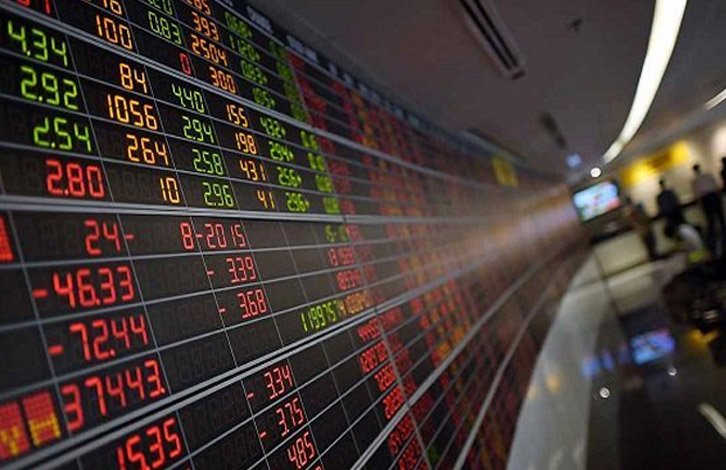Swedish investor challenges opposition parties of Pakistan
Mattias Martinsson, a Swedish investor has tabled a challenge to opposition parties of Pakistan after witnessing the political situation.

Mattias Martinsson, a Swedish investor, the founder and Chief Investment Officer at Tundra Fonder, has tabled a challenge to the opposition parties of Pakistan after witnessing the political situation.
Mattias Martinsson wrote on Twitter, “Based on the criticism of the #Pakistani opposition we should expect two moves if they assume power.
He challenged the opposition parties of Pakistan, saying, “1. Lower the global oil price from the current >100 to a more pleasant 50.” He added, “2. Strengthen the rupee from the current 185 to ca 100.”
The investor said, “Although Pak is a great example right now, this is not a specific criticism of them. Rather the social media politics of our age where politicians will say anything that will get them their votes. Power and self-interest come first. Same story in #Sweden”
Based on the criticism of the #Pakistani opposition we should expect two moves if they assume power:
1. Lower the global oil price from the current >100 to a more pleasant 50.
2. Strengthen the rupee from the current 185 to ca 100#EmergingMarkets #FrontierMarkets #Politics 🤡
— Mattias Martinsson (@Tundra_CIO) April 1, 2022
Political uncertainty, Moodys analysis
The fate of Prime Minister Imran Khan will be decided on Sunday whether he will stay in office or not after the voting on the no-trust move.
Opposition parties in Pakistan (B3 stable) tabled a No-confidence Motion in the government accusing Prime Minister Imran Khan of mismanaging the economy and claiming that the ruling coalition no longer has a parliamentary majority.
Economic achievements of PM Imran Khan-led PTI govt
Voting is likely to take place on 4 April. We view the No-confidence Motion as credit negative because it raises significant uncertainty over policy continuity, as well as the government’s ability to continue to implement reforms to increase productivity growth and secure external financing, including from the International Monetary Fund (IMF).
Khan’s ruling Pakistan Tehreek-e-Insaf party officially controls 155 seats out of 342 in the National Assembly (lower house of parliament) and has a majority of 179 once allied regional parties are included. However, reported defections have put that majority in doubt.
The motion comes at a time when Pakistan is encumbered with surging inflation and widening current account deficits amid rising global commodity prices, according to Moodys.
A further deterioration in its external position, including a significant widening of the current account deficit and erosion of foreign-exchange reserves, would threaten the government’s external repayment capacity and heighten liquidity risks.
Pakistan has faced significant pressure on its foreign-exchange reserves in recent months, amid elevated global commodity prices and a recovery in domestic demand.
The Russia-Ukraine military conflict, which has driven up global commodity prices, has amplified pressure on its external position. The country is a net oil importer, with petroleum and related products accounting for about 20% of total imports.
Pakistan’s current account deficit amounted to more than $12 billion between July 2021 and February 2022, a stark contrast to a $1 billion surplus in the same period a year earlier. We now expect the deficit to widen to 5-6% of GDP in fiscal 2022 (ending June 2022) compared with our previous forecast of 4%.
This further widening will put greater pressure on Pakistan’s foreign reserves, which declined to $14.9 billion as of February 2022 from $18.9 billion in July 2021, according to IMF data, sufficient to cover only around two months of imports.
Securing external financing, including from the IMF, will be key for Pakistan to continue to meet its external obligations given the pressures on its foreign-exchange reserves. However, the No-confidence Motion raises significant uncertainty over the government’s capacity to commit to implementing reforms, particularly those aimed at broadening the revenue base. How Pakistan will approach the IMF program from this point on is uncertain, and its participants could be in doubt.
Pakistan is undergoing its seventh review under the IMF’s Extended Fund Facility program, which has disbursed $3 billion out of the stipulated $6 billion to date.
However, discussions between Pakistan and the IMF appear to have stalled since early March, with the IMF expressing concerns over the government’s recent relief package in response to rising inflation. Relief measures have included subsidies on fuel and electricity prices, as well as a tax amnesty for specified sectors.
Regardless of the outcome of the no-confidence vote, the ruling party will find it difficult to balance advancing revenue-raising reforms to secure external financing and political pressure from voters facing rising living costs.



